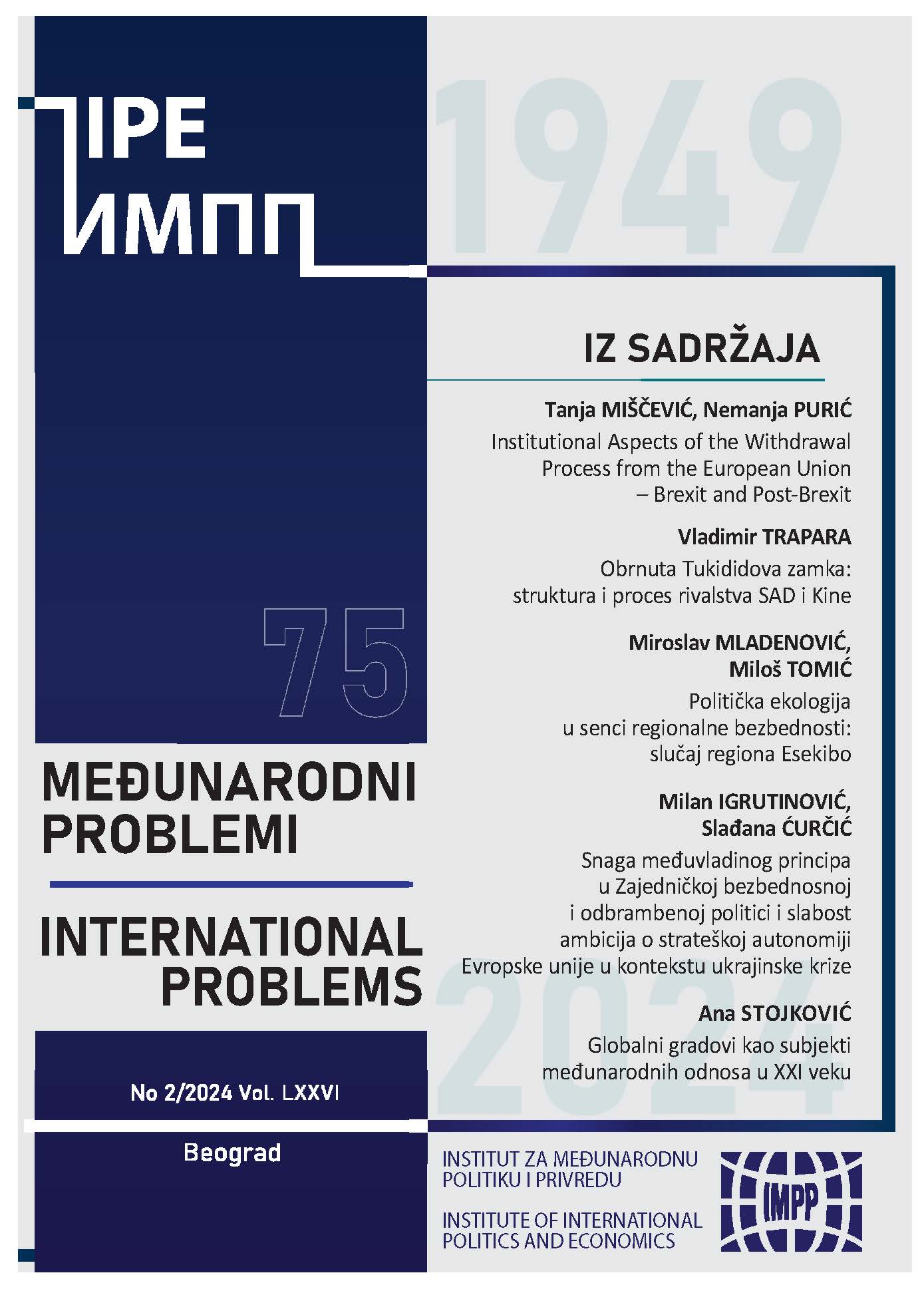Politička ekologija u senci regionalne bezbednosti: slučaj regiona Esekibo
Political ecology in the shadow of regional security: the case of the Essequibo region
Author(s): Miroslav Mladenović, Miloš T. TomićSubject(s): Politics / Political Sciences, Politics, Social Sciences, Civil Society, Sociology, Environmental and Energy policy, Politics and society, Political Ecology, Geopolitics
Published by: Институт за међународну политику и привреду
Keywords: natural resources; demarcation; South America; territorial dispute; security
Summary/Abstract: Continuous exploitation of natural resources within the national borders of a country, especially those intended for energy production (oil, gas, coal), inevitably raises a number of issues in the context of maintaining political, economic and social stability. Observed through the paradigm of the theoretical assumptions of political ecology, the benefits that are realized by the processing and distribution of natural resources are mostly connected with the efficiency of the entire state and social system and thus with security at the internal and external level. Therefore, the goal of this paper is a descriptive analysis of the role of natural resources in disrupting the relationship between Venezuela and Guyana, i.e. territorial dispute over the Essequibo region that has the potential to threaten regional security. Due to the complexity of the study of the historical process of "maturing" of these states and the achievement of mutually acceptable territorial delimitation on land and sea, the paper uses the technique of content analysis, historical-comparative analysis and the technique of narrative analysis. Based on the results of the research, it can be concluded that the current political and security tensions surrounding the solution of the future status of the Essequibo region, which is rich in natural resources, do not have the capacity to develop into more serious conflicts. The state of Venezuela's national security has not been satisfactory for many years, including partial foreign policy isolation, while on the other hand, leading Western countries (USA, Great Britain) provide significant support to the territorial integrity of Guyana as well as neighboring countries, which reduces the potential for endangering regional security.
Journal: Међународни проблеми
- Issue Year: LXXVI/2024
- Issue No: 2
- Page Range: 249-270
- Page Count: 22
- Language: Serbian

